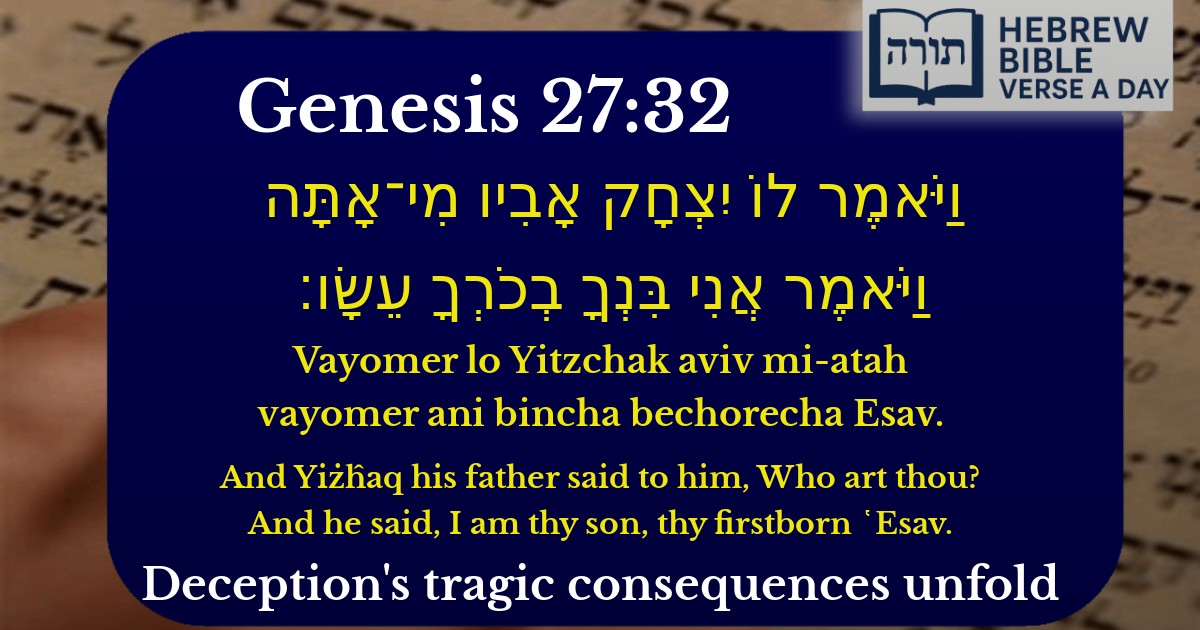Join Our Newsletter To Be Informed When New Videos Are Posted
Join the thousands of fellow Studends who rely on our videos to learn how to read the bible in Hebrew for free!
Hebrew Text
וַיֹּאמֶר לוֹ יִצְחָק אָבִיו מִי־אָתָּה וַיֹּאמֶר אֲנִי בִּנְךָ בְכֹרְךָ עֵשָׂו׃
English Translation
And Yiżĥaq his father said to him, Who art thou? And he said, I am thy son, thy firstborn ῾Esav.
Transliteration
Vayomer lo Yitzchak aviv mi-atah vayomer ani bincha bechorecha Esav.
Hebrew Leining Text
וַיֹּ֥אמֶר ל֛וֹ יִצְחָ֥ק אָבִ֖יו מִי־אָ֑תָּה וַיֹּ֕אמֶר אֲנִ֛י בִּנְךָ֥ בְכֹֽרְךָ֖ עֵשָֽׂו׃
וַיֹּ֥אמֶר ל֛וֹ יִצְחָ֥ק אָבִ֖יו מִי־אָ֑תָּה וַיֹּ֕אמֶר אֲנִ֛י בִּנְךָ֥ בְכֹֽרְךָ֖ עֵשָֽׂו׃
🎵 Listen to leining
Parasha Commentary
📚 Talmud Citations
This verse is quoted in the Talmud.
📖 Megillah 9a
The verse is referenced in the context of discussing the Greek translation of the Torah (Septuagint), where the sages note variations in translation, including this verse.
📖 Sanhedrin 89b
The verse is cited in a discussion about the deception of Isaac by Jacob, highlighting the moral and theological implications of the narrative.


The Question of Identity in Yitzchak's Blindness
This verse (Bereshit 27:32) occurs during the pivotal moment when Yaakov receives the blessings intended for Esav. Yitzchak's question "Who art thou?" reflects both physical and spiritual dimensions according to Orthodox Jewish commentators:
The Claim of Firstborn Status
When the speaker declares "I am thy son, thy firstborn Esav," our commentators find deeper meaning:
Theological Implications
Traditional Orthodox interpretation views this interaction as part of Hashem's plan for establishing Yaakov as the spiritual heir: